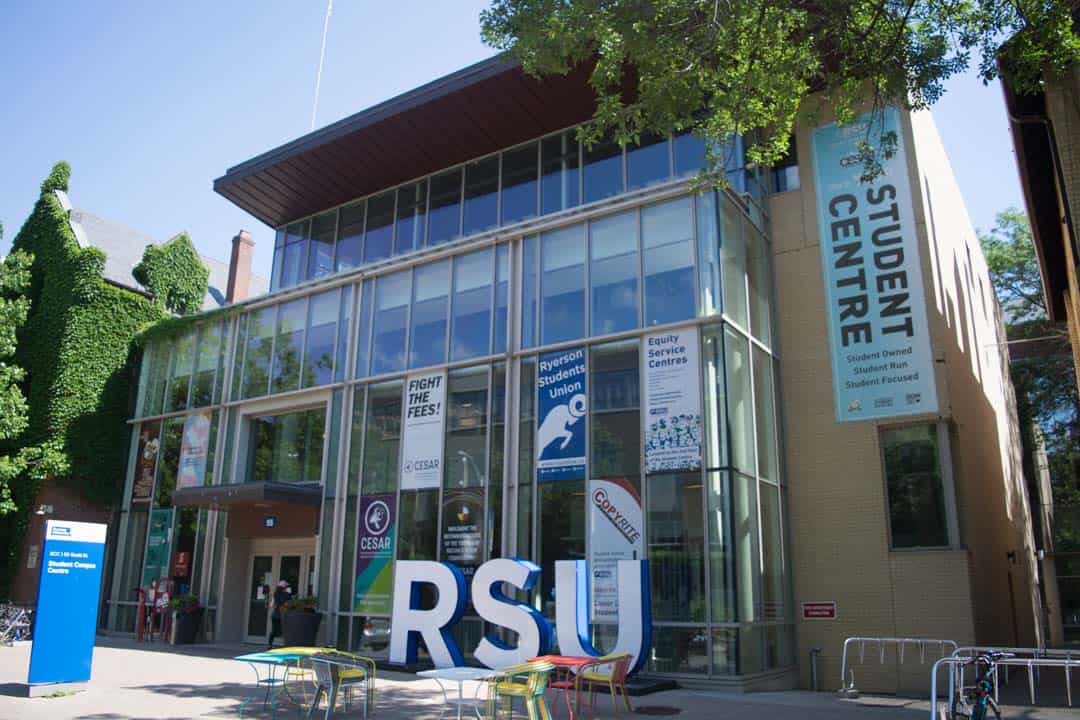In light of Ryerson University’s split with the Ryerson Student Union (RSU) late last month over their mismanagement of funds over the past two years, it’s natural that some people may begin to doubt the ability of student unions to advocate for student rights.
When student representatives spend an alleged $250,000 in student funds on things like drinks at the Rec Room, even the most indifferent students will start to take notice of what that may mean for their wallets. It’s not just Ryerson students that should be concerned; other universities, like our own, can learn from the fallout between Ryerson and the RSU. Universities should have a vested interest in maintaining accountability within their own student unions, should learn from Ryerson’s actions, and recognize that reformation is a preferable choice to cutting ties.
The act of splitting from the RSU inevitably has certain implications for Ryerson University as well. After all, I personally didn’t pay much attention to the difference between the union and the university and I don’t think the average student does either. Perhaps that conflation is justified; unions do have a large impact on campus atmosphere and environment, which is a considerable factor when deciding where to continue your education.
If both of these bodies are connected — at least in the minds of their clients — then the university should want to keep student unions accountable.
Ultimately, there are a number of ways in which the actions of a student union represents its university to students and the rest of the world. Student unions are partially funded by student fees, but in the eyes of a student, these fees often become just another cost of university, lumped together with all the others. As a result, student unions don’t just harm their own reputation when they mismanage funds, they also harm that of their university.
When dealing with mismanaged student unions, the rationale of a prospective student may be that a different school will provide a better experience — one without any concerns of financial foul play.
This is one of the possible reasons for why Ryerson University terminated its agreement with the RSU. The decision was framed as a response to the university’s “‘lost confidence’ in the RSU’s ability to serve and represent students.” In other words, it was an attempt to punish and hold the union accountable for its actions in an admittedly drastic way.
However, the incentive that prompts universities to interfere in the first place is also the very reason they should attempt to improve student unions and not dismantle them: reputation. Student unions offer a range of different services that aim to make campus life more enjoyable for students, and are often important in making people feel safe and comfortable on campus, which can be a deciding factor when choosing a school.
How those services are provided without student unions is unclear.
Case in point, Ryerson University didn’t mention what would happen to the seven Equity Service Centres that the RSU provides on campus. The university did, however, mention that it will continue to offer these vital programs to students, though, it has yet to actually provide an outline for this.
Ryerson has encouraged students to create a new student union, but building all of the infrastructure from scratch seems like a significantly harder task than trying to fix the current one.
Whether these arguments would hold up if this were to happen at U of T is questionable. The issue becomes a lot more personal when it’s your own funds being mismanaged, and your own rights being misrepresented. I’m sure my sense of disappointment, betrayal, and resentment would be considerably stronger if the University of Toronto Students’ Union (UTSU) was under fire.
That being said, I’m still not sure if I would agree with a stance of disbandment. Despite scandals and issues, student unions are still there to represent student rights and act as a proper counterbalance to the university.
In fact, we can compare this situation to the Sandra Hudson lawsuit that spanned from 2015–2018. Hudson, alongside two other UTSU executives were accused of civil fraud when Hudson was fired from the union by those two other executives, and parted from the union with a $277,726.40 severance package. The union responded with a lawsuit that was ultimately settled in court, and released the 2017–2018 financial audit as planned, maintaining the level of transparency that they claim to value.
If the university had felt that the UTSU couldn’t reform or handle its own problems, then I would’ve expected them to act. But in this case, any interference would’ve been misguided given the controversial nature of the lawsuit and the fact that there were already other student bodies, like the The Varsity‘s coverage, paying attention to the union’s actions. The university didn’t take any drastic action in favour of, or against the union, but the situation still resolved itself and as such, the union is free to keep on providing services and reforming in whatever way that it deems fit.
Ryerson’s choice to cut off its student union seems abrupt since there were other easier and more logical ways the situation could have been handled to hold the RSU accountable. Forcing a student union to offer forensic audits and implement reforms is the system by which we expect autonomous bodies to keep each other accountable — what we don’t expect is for them to get rid of opposing bodies they don’t like.
Marta Anielska is a first year Social Sciences student at University College.


